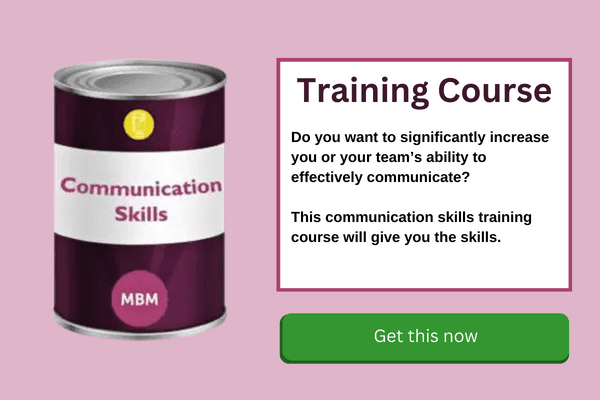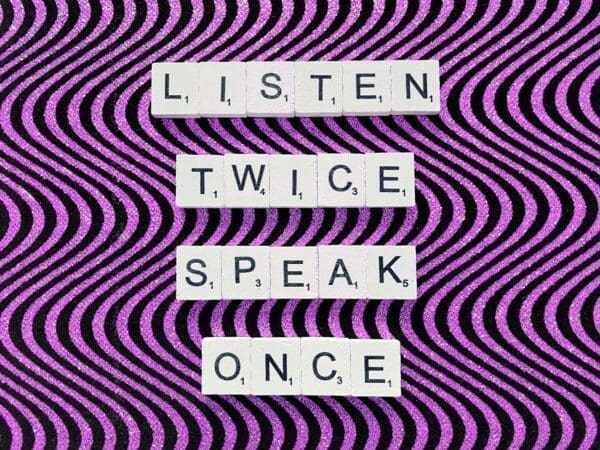Demonstrate Communication Skills with These 17 Tips
People in the workplace need to be able to communicate effectively with others. This blog post will discuss what communication skills are and how they can be demonstrated.
The most important skill is listening, which means paying attention and understanding what others are saying. Verbal communication involves clear speaking that others can understand you and asking questions when necessary.
Non-verbal communication consists in using your body language, facial expressions, tone of voice and eye contact to convey a message. It’s also important not to interrupt other speakers or make assumptions about their point of view before hearing them out completely.
That means speaking in a way that other people can understand. When you have a conversation with someone, it’s essential to be “present.” That means listening and talking in a way that makes the other person feel safe and understood. It also means being clear about your message instead of dancing around things or showing off.
Practice this by speaking into a recorder for ten minutes.

1. Develop Your Voice
Sometimes, we get caught up in what we want to say instead of listening to others’ words. This creates a situation where two people are talking to each other rather than cooperating. In this situation, if you know how to demonstrate interpersonal skills in a conversation, you will easily manage. It’s essential to adapt your communication style so that the other person feels listened to and valued.
The best way to do this is by asking questions about what they’ve said. Practice active listening by picking out keywords or phrases from what someone is saying and asking questions about those specific points. Demonstrate how to utilize specialized communication skills.
Types of questions to ask when you want to show that you’re listening:
- What can I do to help?
- Can you tell me more?
- Would it be helpful if…?
2. Don’t Talk Too Much or Too Little
There is a fine line between the two, and it takes a while to learn exactly where that line lies. Talk too much, and you’ll lose people’s interest. Wait for them to ask questions rather than doing the work yourself with the risk of sounding like a know-it-all. When you talk too little, it shows that you’re not interested in exchanging ideas and possibly even listening at all, which makes you look rude. Talk too much about the wrong things, and you’ll come off as insecure, which is exhausting.
Once you finish your thoughts, give others a chance to respond before moving on to something else. That is where the magic happens because the conversation can go in different directions based on what you say next. Sometimes it’s better to say nothing at all; listen. If you’re unsure what to say next or if there’s a lull in the conversation, ask questions that will get the other person talking again.
3. Be Mindful of Your Body Language and Tone of Voice

That seems like common sense, but it’s important enough to mention on its own. Pay attention to your body language, tone of voice, and facial expressions. They convey emotions that others can interpret. Make sure you’re not sending mixed signals because there’s nothing worse than being led on.
Show interest in the other person, engage with them and make eye contact when appropriate to demonstrate practical interpersonal skills. Use positive body language like regular speaking volume, regular speaking tone, and enthusiastic facial expressions.
Sticky Learning ® is 7 times more effective than 1-day training courses. Plus, you will get a Chain of Evidence proving your Return on Investment. Discover soft skills training that changes behaviours long term.

4. Know When to Stand Your Ground
There are times when it’s best to budge for the sake of peace, and there are times when you need to be assertive or even aggressive if necessary. You can do this by using confident body language and a firm voice. A good rule of thumb is, to be honest, but not mean.
If you have an opinion about something, voice it. Even if it rubs people the wrong way. That doesn’t necessarily mean you should always be right or correct yourself all the time. Be confident in your thoughts and actions even if they don’t line up with others because that will only make them respect you more.
5. Be Concise With Your Message
Another point to keep in mind when communicating is an individual’s intention. How does the other person want to be heard? You should be careful about how are they reacting to your messages. How do you want this person to feel? It’s essential to think about these questions before saying anything, especially if it’s less than 140 characters. You can’t just say whatever you want without thinking about how it can be interpreted and how it will make people feel.
6. Avoid Jargon and Buzzwords
Jargon and buzzwords are vital in communicating with your coworkers. Still, these two terms can also make things more complicated for those with less understanding. It’s essential to use simple language and refrain from jargon and buzzwords as much as possible to create a practical atmosphere for effective communication. You must be sure about what is necessary vocabulary, and what is over complex jargon.

7. Understand the Audience’s Needs or Interests to Engage Them in Conversation
In the workplace, it is essential for those communicating to listen and understand what is being shared and articulate a message. One must understand the listener’s needs or interests to engage them in the conversation for this to happen.
For example, suppose you want someone who does different work than you to understand your perspective. In that case, you will have a much easier time if you put yourself in their shoes so that they can see how you feel about the subject.
8. Use Eye Contact When Speaking to Others to Show Attentiveness and Interest
When communicating with others, it’s essential to use your body language and your tone of voice. How can you be sure that you’re using eye contact? Do eye contact show attentiveness and interest? The eyes send messages in a conversation in which both parties use eye contact effectively. How do people react when eye contact is made?
The messages sent by one person to the other person will respond to and create an atmosphere of feeling safe and comfortable.

9. Speak up if you Have Something Important to Say so That People Can Hear You Better
If you have something important to say, it is a good idea to make sure that people can hear what you’re saying. This helps with your communication skills and allows you to speak up better. How does speaking up reflect your confidence? And how would you know if someone is having trouble hearing what you’re saying?
Speaking louder and at a more projecting tone of voice will allow the person listening to hear and understand what is being communicated. Maintaining composure in which we feel confident, and question-asking will also help us understand the message being sent. It’s good to remember that there are options for different ways to communicate, so if the person you are speaking to does not understand what you are saying, it might be time.
10. Make Sure You are Prepared for a Meeting Before Attending it
Doing some research beforehand on what will be discussed during the meeting means that you know what points of discussion might be relevant for your input. Before attending a meeting or communicating with others, it is essential to make sure that you research to be prepared.
Preparing for the meeting will help us understand what will be discussed and which points of discussion might be relevant. This allows the person to have helpful information at hand that they can reference during the course.
11. Pay Attention During Meetings by Listening, Avoiding Checking Emails, etc.
This may show your lack of interest or respect for those actively participating in the meeting. Respect is something that people will notice and can be lost if it is not present. This reflects your communication skills and your respect for those who are present at the meeting.
One should pay attention during a meeting before they start losing others’ attention.
It’s essential to give an impression of interest and attentiveness when in meetings, showing respect to those present. Being attentive during sessions also ensures that essential points are not missed.
12. Listen Actively by not Interrupting Speakers With Irrelevant Comments or Questions
Active listening is a communication skill that requires the people involved in the conversation to be open, non-judgmental, and willing to hear what is going on. Active listening helps with your communication skills and reflects the aforementioned respect.
13. Ask Clarifying Questions if There is Any Confusion About What Was Said
When a person actively listens during a meeting, they will not try to interrupt speakers with irrelevant comments or questions. This would disrupt the speaker and create an atmosphere of being judgmental. However, asking clarifying questions at an appropriate moment is good, as this demonstrates your engagement with the discussion and your willingness to look deeper.
14. Offer Constructive Feedback After a Meeting has Ended

After a meeting or conversation, it’s important to offer feedback so you can learn from the experience.
Constructive feedback is the type of feedback that helps move forward and improve a situation. The feedback helps you with your communication skills, as it allows you room to progress and receive constructive criticism.
15. Practice Makes Perfect
Make an effort every day to improve communication skills by practising new techniques regularly.
This is what I do to make sure that my communication skills keep getting better. The more often I practice, the better my skills will become.
How much time should you spend practising every day?
Maybe five minutes to start with, but eventually an hour or more, and this will become much less forced when you get into a regular routine.
16. “The Squeaky Wheel Gets the Grease.”
Speak up more often than not during a meeting, because the most noticeable problem is the one that needs attention as the saying goes, and many others will most likely be thinking the same as you.

17. Don’t Be Afraid to Talk
As mentioned in the previous point, there are often others thinking the same as you. If you go ahead and speak up, this will encourage others to do the same. This, in turn, demonstrates your communication skills and allows others to exercise their own.
Conclusion on How to Demonstrate Communication Skills
Knowing how to demonstrate communication skills are essential for success in any profession. We all want to be understood by others and feel like our ideas, opinions, or thoughts matter. The steps outlined above should help you improve your communication skills. And allow people can hear what you have to say through eye contact, a clear speaking voice, the inclusion of important points during meetings, and more.
If these ‘how to demonstrate communication skills’ tips seem daunting at first glance, don’t worry! Just take them one at a time until they become second nature; then watch how effortless it becomes to communicate with others effectively every day!




